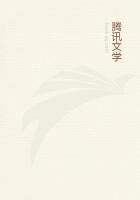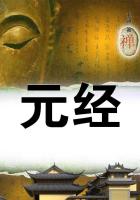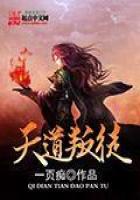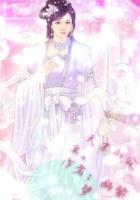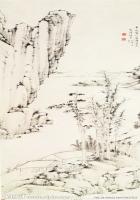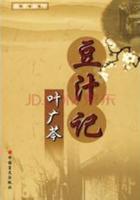The man with the white face entered the carriage at Rugby. He moved slowly in spite of the urgency of his porter, and even while he was still on the platform I noted how ill he seemed. He dropped into the corner over against me with a sigh, made an incomplete attempt to arrange his travelling shawl, and became motionless, with his eyes staring vacantly. Presently he was moved by a sense of my observation, looked up at me, and put out a spiritless hand for his newspaper. Then he glanced again in my direction.
I feigned to read. I feared I had unwittingly embarrassed him, and in a moment I was surprised to find him speaking.
"I beg your pardon?" said I.
"That book," he repeated, pointing a lean finger, "is about dreams."
"Obviously," I answered, for it was Fortnum Roscoe's Dream States, and the title was on the cover.
He hung silent for a space as if he sought words. "Yes," he said at last, "but they tell you nothing."
I did not catch his meaning for a second.
"They don't know," he added.
I looked a little more attentively at his face.
"There are dreams," he said, "and dreams."
That sort of proposition I never dispute.
"I suppose--" he hesitated. "Do you ever dream? I mean vividly."
"I dream very little," I answered. "I doubt if I have three vivid dreams in a year."
"Ah!" he said, and seemed for a moment to collect his thoughts.
"Your dreams don't mix with your memories?" he asked abruptly.
"You don't find yourself in doubt; did this happen or did it not?"
"Hardly ever. Except just for a momentary hesitation now and then. I suppose few people do."
"Does he say--?" He indicated the book.
"Says it happens at times and gives the usual explanation about intensity of impression and the like to account for its not happening as a rule. I suppose you know something of these theories--"
"Very little--except that they are wrong."
His emaciated hand played with the strap of the window for a time. I prepared to resume reading, and that seemed to precipitate his next remark. He leant forward almost as though he would touch me.
"Isn't there something called consecutive dreaming--that goes on night after night?"
"I believe there is. There are cases given in most books on mental trouble."
"Mental trouble! Yes. I daresay there are. It's the right place for them. But what I mean--" He looked at his bony knuckles. "Is that sort of thing always dreaming? Is it dreaming?
Or is it something else? Mightn't it be something else?"
I should have snubbed his persistent conversation but for the drawn anxiety of his face. I remember now the look of his faded eyes and the lids red stained--perhaps you know that look.
"I'm not just arguing about a matter of opinion," he said.
"The thing's killing me."
"Dreams?"
"If you call them dreams. Night after night. Vivid!--so vivid . . . . this--" (he indicated the landscape that went streaming by the window) "seems unreal in comparison! I can scarcely remember who I am, what business I am on . . . ."
He paused. "Even now--"
"The dream is always the same--do you mean?" I asked.
"It's over."
"You mean?"
"I died."
"Died?"
"Smashed and killed, and now, so much of me as that dream was, is dead. Dead forever. I dreamt I was another man, you know, living in a different part of the world and in a different time.
I dreamt that night after night. Night after night I woke into that other life. Fresh scenes and fresh happenings--until I came upon the last--"
"When you died?"
"When I died."
"And since then--"
"No," he said. "Thank God! That was the end of the dream . . . "
It was clear I was in for this dream. And after all, I had an hour before me, the light was fading fast, and Fortnum Roscoe has a dreary way with him. "Living in a different time," I said: "do you mean in some different age?"
"Yes."
"Past?"
"No, to come--to come."
"The year three thousand, for example?"
"I don't know what year it was. I did when I was asleep, when I was dreaming, that is, but not now--not now that I am awake.
There's a lot of things I have forgotten since I woke out of these dreams, though I knew them at the time when I was--I suppose it was dreaming. They called the year differently from our way of calling the year . . . What did they call it?" He put his hand to his forehead. "No," said he, "I forget."
He sat smiling weakly. For a moment I feared he did not mean to tell me his dream. As a rule I hate people who tell their dreams, but this struck me differently. I proffered assistance even. "It began--" I suggested.
"It was vivid from the first. I seemed to wake up in it suddenly. And it's curious that in these dreams I am speaking of I never remembered this life I am living now. It seemed as if the dream life was enough while it lasted. Perhaps--But I will tell you how I find myself when I do my best to recall it all. I don't remember anything clearly until I found myself sitting in a sort of loggia looking out over the sea. I had been dozing, and suddenly I woke up--fresh and vivid--not a bit dreamlike--because the girl had stopped fanning me."
"The girl?"
"Yes, the girl. You must not interrupt or you will put me out."
He stopped abruptly. "You won't think I'm mad?" he said.
"No," I answered. "You've been dreaming. Tell me your dream."
"I woke up, I say, because the girl had stopped fanning me.
I was not surprised to find myself there or anything of that sort, you understand. I did not feel I had fallen into it suddenly. I simply took it up at that point. Whatever memory I had of this life, this nineteenth-century life, faded as I woke, vanished like a dream. I knew all about myself, knew that my name was no longer Cooper but Hedon, and all about my position in the world. I've forgotten a lot since I woke--there's a want of connection--but it was all quite clear and matter of fact then."
He hesitated again, gripping the window strap, putting his face forward and looking up to me appealingly.
"This seems bosh to you?"
"No, no!" I cried. "Go on. Tell me what this loggia was like!"

